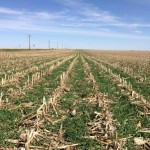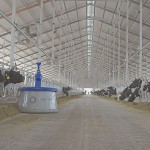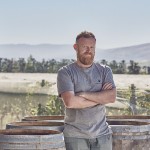The Natural Choice for Pāmu
Added 9 months ago
By Hawke's Bay Future Farming Trust
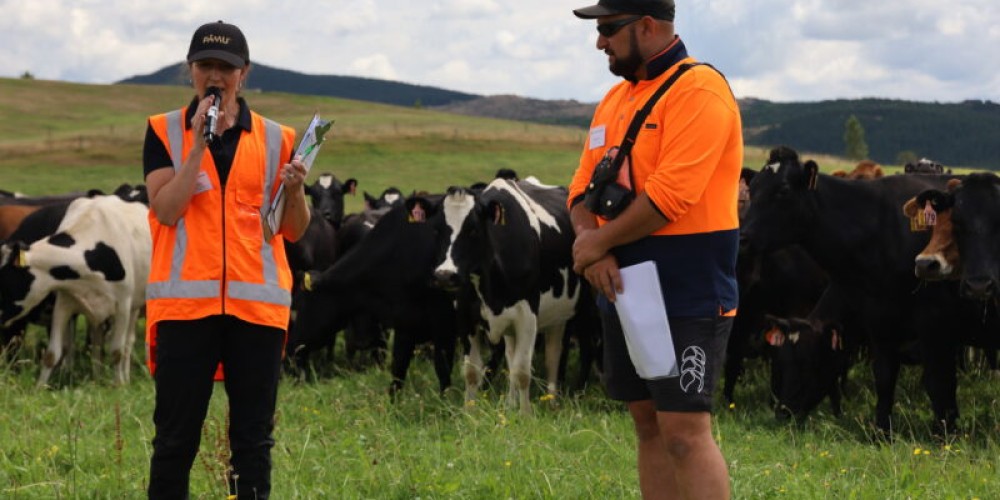
Pāmu has embraced organic farming to create a dairy system that is both profitable and environmentally sustainable. The state-owned farming company operates 11 organic dairy farms across the North Island, including in Wairākei, north of Taupō, and Moutoa in the lower North Island.
Pāmu began converting its farms to organic in 2016, starting with a phased approach in South Waikato and Moutoa. Cleo Te Kiri, Pāmu’s Dairy Business Manager for Organics, shared insights during an open day at Earnslaw, part of the Wairākei farm cluster.
The Earnslaw farm, a combined dairy and support block spanning 675 effective hectares, started its three-year organic certification in 2016. The farm operates with five center pivots, irrigating 232 hectares with water from the Waikato River. It milks 780 cows—a mix of Jersey, Friesian, and Kiwicross breeds—under the management of Scott Kupa and his team of five full-time staff. The support block, managed by two additional staff, houses 342 heifers and 190 heifer calves.
Te Kiri explained that Pāmu’s organic farms were initially chosen due to their high environmental footprint, particularly those with irrigation systems. This decision was also influenced by impending regulatory changes from the Waikato Regional Council’s Plan Change 1. Pāmu aimed to create a farming system that was both profitable and had a lower environmental impact.
Initially, Pāmu had concerns about the impact of organic farming on animal health, pasture management, and financial performance. Despite these reservations, they proceeded with the conversion. By 2019, after converting five more farms, Pāmu conducted an independent review by Baker Ag, which confirmed the positive outcomes of increased profitability and reduced environmental impact. Key performance indicators (KPIs) on the organic farms were found to be comparable, if not superior, to those on Pāmu’s conventional farms.
The transition was not without challenges. One major issue was feed management, as organic certification of the land took three years, while animal certification required just one year. Pāmu had to convert both concurrently in the third year to meet certification requirements. Restrictions on carrying over feed from one season to the next posed additional difficulties, particularly in times of drought.
Animal health also presented challenges, as Pāmu had to phase out the use of drench, dry cow therapy, and antibiotics, which were common in conventional farming. Despite initial concerns, Pāmu’s organic farms recorded a lower death rate of 3.7% last season compared to 4.5% on conventional farms. This season, however, issues like mastitis and downer cows have increased the death rate to 4.5%.
Te Kiri emphasized that the success of Pāmu’s organic farming is largely due to the commitment of its staff to the organic philosophy. Managing young stock without drenching was initially daunting, but the young stock on organic farms now perform as well, if not better, than their peers on conventional farms, thanks to meticulous stock management.
Earnslaw farm has consistently been Pāmu’s top-earning farm per hectare within the organic cluster, with an EBIT of over $4,000 per hectare. Across the 11 organic farms, EBIT is 30% higher than on conventional farms. Additionally, organic farms deliver a $1.88/kg MS premium over conventional payouts, with less price volatility, allowing for better seasonal planning.
Farm manager Scott Kupa highlighted the importance of effective feed management and data-driven decision-making. Pasture management is crucial, with the farm’s 2IC conducting weekly plate walks to inform grazing plans.
Challenges continue, such as finding alternatives to synthetic fertilizers, antibiotics, and managing the fertility of pumice soils converted from forestry. Te Kiri noted that while the stocking rate on organic farms has decreased and production costs have risen, the farms produce a niche product with higher value.
Join the conversation
Be the first to leave a comment.
Leave a comment
All comments are reviewed before they are published on the website. Your email address will not be published.

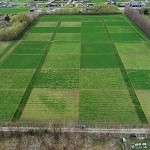
Innovative Approaches to Sustainable Farming: Integrating Soil Science, Pasture Management, and Dairy Research
